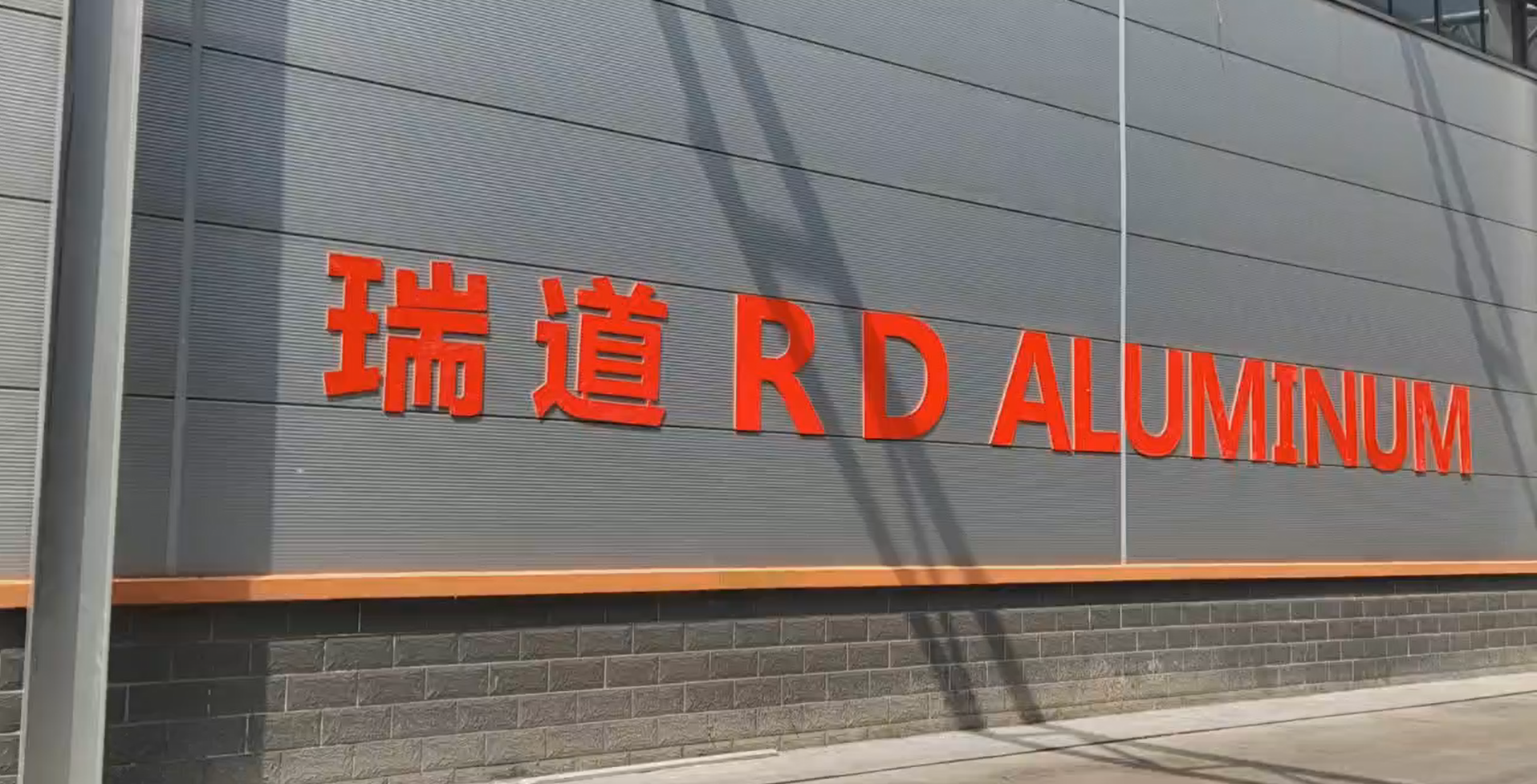Why Supplier Reliability Determines Aluminium Project Success
How Supplier Selection Impacts Aluminium Quality and Project Outcomes
When companies pick the wrong suppliers, it often leads to problems with materials in aluminium projects. Looking back at data from 2023 across about 500 different industrial projects, around a quarter of all structural issues actually came down to bad aluminium alloys bought from suppliers who weren't properly vetted. Getting consistent material properties matters a lot - things like tensile strength ranging between roughly 140 to 550 MPa and thermal conductivity somewhere between 120 and 220 W per meter Kelvin depend heavily on strict quality checks throughout manufacturing. The good news? Manufacturers who work with suppliers that have solid testing procedures tend to see their rejection rates drop by almost half, as various metallurgy reports have shown over recent years.
The Importance of a Proven Track Record in Reliable Aluminium Supply
Established suppliers with ISO 9001 certification demonstrate 98% on-time delivery rates for aluminium orders, compared to 72% for new market entrants. Long-term partners invest in traceability systems that document:
- Alloy composition variances (±0.5%)
- Mill test reports for every batch
- Third-party validation of mechanical properties
This documentation proves critical when certifying aerospace components or architectural systems requiring decades of service life.
Industry Benchmarks That Define Trustworthy Aluminium Suppliers
Top-tier suppliers meet or exceed ASTM B209/B221 standards for dimensional tolerances (±0.13 mm) and surface finish requirements (Ra 1.6 µm). The Aluminum Association reports that 85% of project delays originate from suppliers failing to:
- Maintain ±2°C temperature control during heat treatment
- Provide AS9100-compliant documentation for aviation-grade alloys
- Execute just-in-time deliveries with <0.1% packaging defects
These operational metrics separate reliable partners from cost-cutting vendors.
Key Criteria for Evaluating Aluminium Suppliers
Assessing aluminium quality, production capabilities, and testing protocols
Companies that follow ISO 9001 standards generally show good quality control practices across their operations. They typically check materials through sampling processes, run tests to verify what kind of alloys they're working with using spectrographic methods, and perform various mechanical tests as part of their routine. Serious suppliers don't just talk about quality assurance either. Most will actually conduct ASTM B209 compliant tensile strength tests on their aluminum parts, looking for at least 270 MPa in 6061-T6 grade material. And many also request third party mill test reports to double check everything is within spec. When it comes time for production audits, there are several key areas worth checking. The ability to maintain tight tolerances matters a lot. For example, 5 axis CNC machines need to stay within about plus or minus 0.1 mm. Anodizing thickness is another critical factor, usually falling between 15 and 25 micrometers according to MIL-A-8625 specifications.
Range and availability of aluminium products (sheet, tube, plate, bar)
The best suppliers carry over forty standard product forms. These include everything from thin sheets measuring just 0.2mm thick all the way up to massive plates that can stretch nearly 6 meters long. Tubes range between 6mm and an impressive 600mm in diameter while bars come in various shapes including round, square, and hexagonal options. When shopping around, it's worth checking if they offer JIS H4100 certified extrusions since these meet strict quality standards. Also look out for ASME SB247 cold finished rods which are known for their superior finish quality. Many top providers use just in time inventory management that cuts down waiting periods significantly. For example, getting hold of popular 5083 marine grade plates takes about one third less time when ordering from these efficient warehouses compared to traditional custom order operations.
Expertise in handling, storing, and shipping aluminium without damage
Moisture-controlled warehouses (<60% RH) prevent oxidation, while interleaved stacking of sheets using HDPE spacers minimizes surface abrasion. Certified logistics partners deploy temperature-stabilized trailers (15–25°C) and shock-absorbent pallets, reducing transit-related defects by 92% according to 2023 supply chain studies.
Customer service transparency, order tracking, and after-sales support
Leading providers offer API-integrated portals for real-time lot tracking, automated certificate generation, and claim resolution within 48 hours. Dedicated account managers provide annual consumption analytics and cost-reduction strategies, with 82% of B2B buyers prioritizing this feature in RFQ processes.
Essential Certifications and Quality Standards for Aluminium
Critical certifications: ASTM, SAE, UNS, and ISO standards for aluminium
When looking for good aluminum sources, manufacturers really need to check if their suppliers follow key industry standards like ASTM, ISO, and the UNS system. Take ISO 9001 for example. This certification basically proves that a company has solid quality controls in place. Some studies show companies with this certification tend to have around 24% fewer problems with materials breaking down, especially important stuff like parts used in airplanes. Then there's ASTM B221 which deals specifically with how strong aluminum extrusions need to be. Without this standard, buildings and bridges might not hold up as well over time. Getting third party confirmation that these standards actually apply to the products being sold helps cut down on headaches later when dealing with bad batches or parts that don't fit properly.
How compliance ensures long-term material integrity and performance
Aluminium that meets certification standards keeps its strength properties intact over many years, with grades like 6061 maintaining around 35 ksi yield strength while resisting corrosion. When suppliers follow ISO 2768 guidelines, they actually cut down on extra work needed later in car manufacturing plants. These certified parts come within about 0.2mm accuracy, which saves money downstream. Looking at bridges built recently, studies show that aluminium meeting ASTM specs develops cracks much more slowly than non-certified materials. This difference means structures last longer before needing repairs or replacement.
Verifying supplier adherence to quality control and traceability practices
Good quality suppliers usually include mill test reports with each shipment showing what chemicals are present, how the metal was treated, and its strength characteristics. When shopping around, it's worth checking if they have real time monitoring during production. These systems keep tabs on things like extrusion temps which need to stay within about 5 degrees Celsius and pressures between roughly 1500 to 2600 pounds per square inch. Getting these numbers right helps avoid problems in the final product. Most industry folks these days ask for IATF 16949 certification when buying aluminum parts for cars. This standard makes sure there's proper tracking so any defects can be traced back quickly, typically within three days or so according to recent surveys among manufacturers.
Selecting the Right Aluminium Grade for Your Application
Key factors in matching aluminium grades to project demands
Picking the right aluminum grade isn't just guesswork it requires looking at what kind of stress the material will face, where it'll be used, how it needs to be shaped, and any rules that must be followed. For parts under heavy strain, engineers look for alloys that can handle serious tension forces above 400 MPa usually. But when materials go into boats or coastal equipment, different priorities kick in. Grades such as 5083 and 5052 become favorites because they resist rusting even after years in saltwater environments. Recent research published in the Journal of Materials Engineering back in 2023 shows something alarming about wrong choices here. Nearly seven out of ten material failures trace back to selecting the wrong aluminum type for the job at hand.
Performance comparison: 2024, 6061, and 7075 aluminium alloys
| Alloy | Tensile Strength (MPa) | Fatigue Limit (10· cycles) | Common Applications |
|---|---|---|---|
| 2024 | 470 | 138 MPa | Aircraft structures |
| 6061 | 310 | 97 MPa | Architectural frames |
| 7075 | 570 | 159 MPa | Robotics components |
Industry benchmarks reveal 7075 aluminium outperforms 2024 in fatigue resistance by 15% under dynamic loads, while 6061 remains the preferred choice for welded structures due to its thermal conductivity.
Strength, fatigue resistance, and use of 2024 aluminium in high-stress environments
2024 aluminium’s T351 temper achieves 20% greater yield strength than standard grades (470 vs. 395 MPa), making it ideal for aircraft wing components. Its 138 MPa fatigue limit withstands 50,000+ flight cycles without cracking—a key reason 62% of aerospace manufacturers specify this grade for critical load-bearing parts.
Corrosion resistance and protective coating options for different alloys
While 2024 requires alclad coatings for saltwater exposure, 6061 naturally resists oxidation through its magnesium-silicon composition. Recent tests show anodized 6061 withstands 3,000+ hours in salt spray chambers—40% longer than untreated surfaces. Advanced treatments like chromate conversion coatings enhance 7075’s corrosion resistance by 70% in acidic environments.
Custom Processing and Value-Added Services in Aluminium Supply
Weldability and Machinability Across Common Aluminium Forms
The ability to weld and machine different forms of aluminium varies quite a bit depending on whether we're looking at sheets, bars or tubes. Take 6061 alloy for instance it holds up pretty well when welded in T6 temper conditions. But things get trickier with 3003 series sheets where fabricators need to watch their heat input closely to avoid unwanted warping issues. When it comes to how easy these materials are to work with, the numbers tell an interesting story. Machinability ratings show that 6061 gets a base score of 100%, whereas 2011 aluminium actually scores higher at 130%. These differences matter because they affect how quickly tools wear down and ultimately drive production costs. According to recent machining efficiency reports from 2023, this can make a difference of around 18% in overall project expenses.
Supplier Capabilities in Cutting, Bending, and Custom Fabrication
Good quality suppliers who provide full machining services can get tolerances down to around 0.1mm when working with laser cut aluminum sheets something that matters a lot in both aerospace and car manufacturing. Modern press brakes manage to create those clean 90 degree bends even on 6mm thick plates without any cracks forming on the surface. Meanwhile, CNC machines tackle intricate shapes in 7075-T651 aluminum bars with impressive accuracy. When it comes to finishing touches, treatments such as anodizing or powder coating really boost protection against rust. These processes make surfaces 3 to 5 times more resistant to corrosion than what we see on raw metal surfaces according to industry standard tests like the ASTM B117 salt spray method.
Frequently Asked Questions
What are the key certifications to look for in aluminium suppliers?
Essential certifications include ISO 9001, ASTM standards, AS9100 for aerospace, and UNS for material specifications. These ensure quality control and adherence to industry standards.
Why is supplier reliability crucial for aluminium projects?
Reliable suppliers provide consistent material quality, timely deliveries, and comprehensive documentation, reducing project delays and material failures.
How can I ensure the right aluminium grade for my application?
Consider factors like tensile strength, corrosion resistance, and specific environmental conditions; consult technical materials, certifications, and supplier expertise.
What performance aspects differentiate 2024, 6061, and 7075 aluminium alloys?
7075 offers higher fatigue resistance, while 6061 is best for welded structures due to its thermal conductivity. 2024 is ideal for high-stress applications like aircraft wings.
What services should a good aluminium supplier offer?
Look for suppliers offering machining, cutting, custom fabrication, and protective coatings, coupled with excellent customer service and logistics solutions.
Table of Contents
- Why Supplier Reliability Determines Aluminium Project Success
- Key Criteria for Evaluating Aluminium Suppliers
- Essential Certifications and Quality Standards for Aluminium
- Selecting the Right Aluminium Grade for Your Application
- Custom Processing and Value-Added Services in Aluminium Supply
-
Frequently Asked Questions
- What are the key certifications to look for in aluminium suppliers?
- Why is supplier reliability crucial for aluminium projects?
- How can I ensure the right aluminium grade for my application?
- What performance aspects differentiate 2024, 6061, and 7075 aluminium alloys?
- What services should a good aluminium supplier offer?

